Our brain waves can align when we work and play closely together. The phenomenon, known as interbrain synchrony, suggests that collaboration is biological.
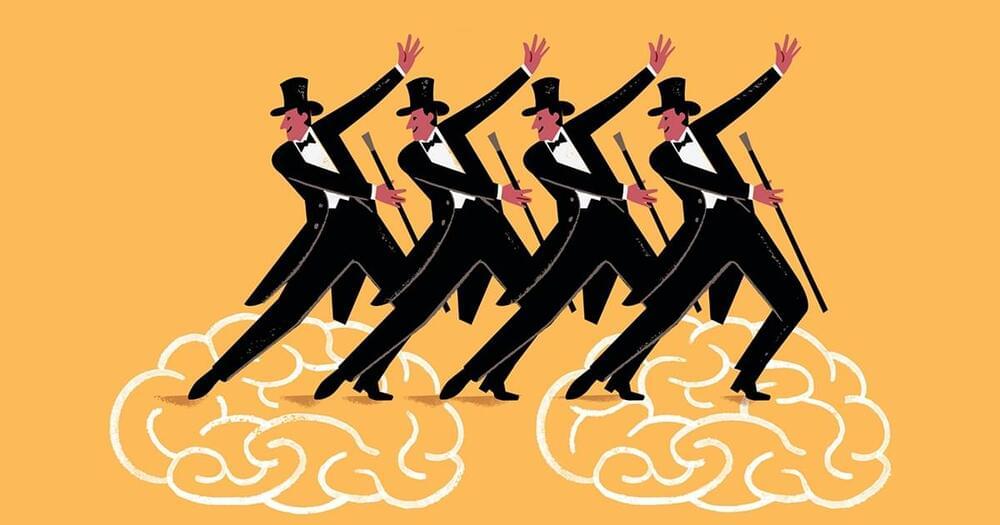

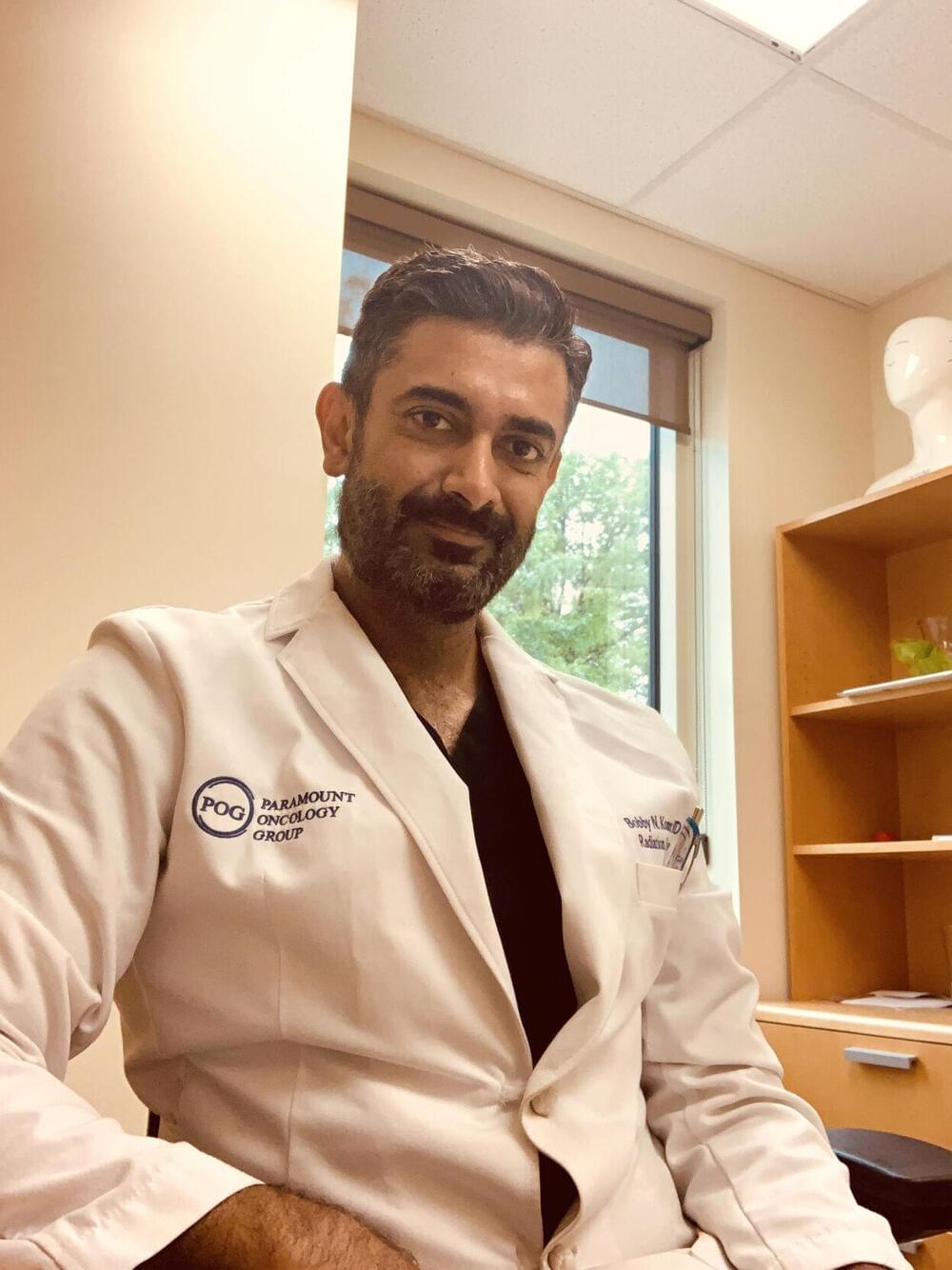
In a groundbreaking study led by Dr. Karen Fitzgerald, six women between the ages of 45 and 65 experienced a remarkable reduction in their biological age by an average of five years in just eight weeks. The findings offer promising insights into the potential of lifestyle changes to combat aging.
The study, which focused on the distinction between chronological age and biological age, revealed that while chronological age remains fixed, biological age — the age of one’s cells — can be influenced and even reversed through targeted interventions.
Using Dr. Steven Horvath’s epigenetic clock, which measures 353 markers associated with methylation changes linked to aging, the researchers assessed the participants’ biological age before and after the intervention.
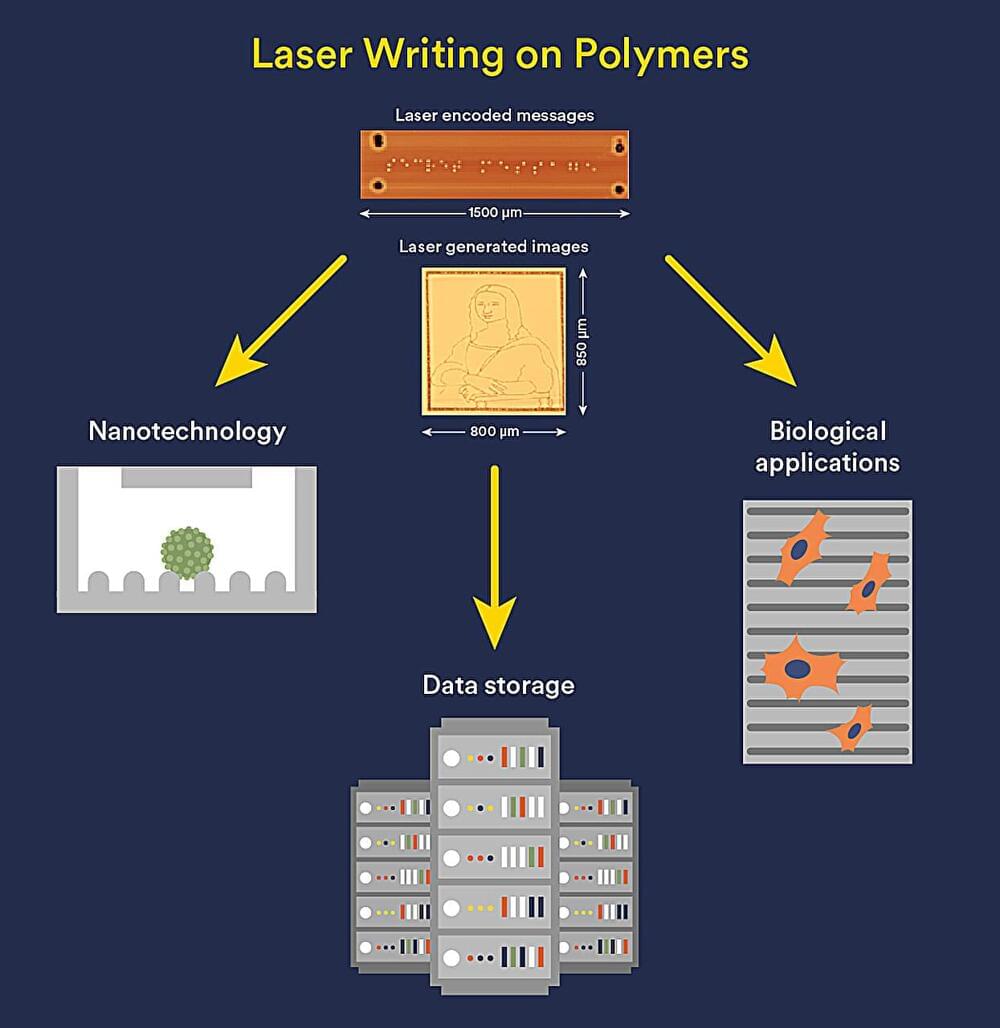
Now Flinders University researchers have discovered a light-responsive, inexpensive sulfur-derived polymer receptive to low power, visible light lasers—which promises a more affordable and safer production method in nanotech, chemical science and patterning surfaces in biological applications.
Details of the novel system have just been published in Angewandte Chemie International Edition, featuring a laser-etched version of the famous “Mona Lisa” painting and micro-Braille printing even smaller than a pin head.
“This could be a way to reduce the need for expensive, specialized equipment, including high-power lasers with hazardous radiation risk, while also using more sustainable materials. For instance, the key polymer is made from low-cost elemental sulfur, an industrial byproduct, and either cyclopentadiene or dicyclopentadiene,” says Matthew Flinders Professor of Chemistry Justin Chalker, from the Flinders University.
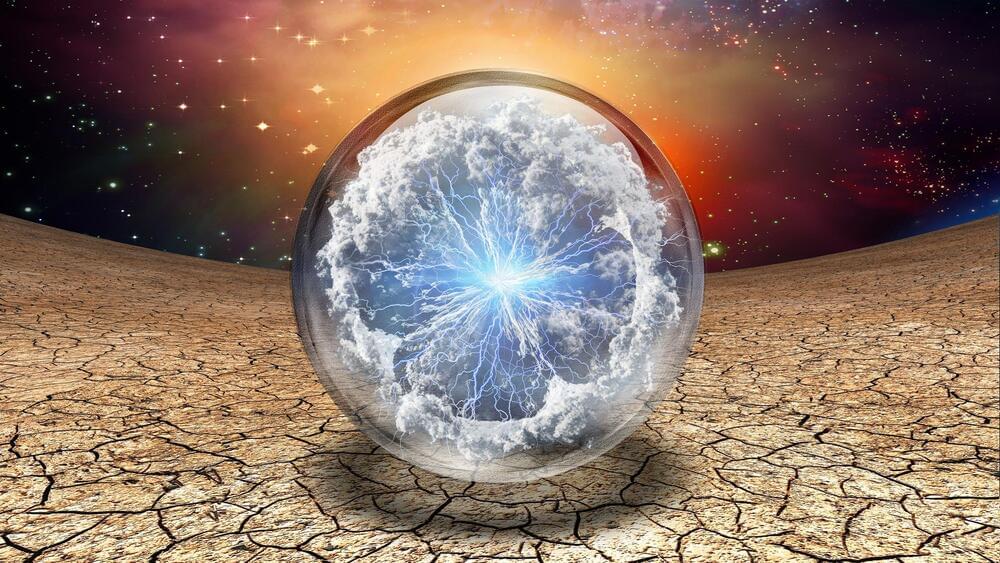
A recent study reveals how hydrogen gas, often touted as the energy source of tomorrow, provided energy in the past, at the origin of life 4 billion years ago. Hydrogen gas is clean fuel. It burns with oxygen in the air to provide energy with no CO2.
Hydrogen is a key to sustainable energy for the future. Though humans are just now coming to realize the benefits of hydrogen gas (H2 in chemical shorthand), microbes have known that H2 is a good fuel for as long as there has been life on Earth. Hydrogen is ancient energy.
The very first cells on Earth lived from H2 produced in hydrothermal vents, using the reaction of H2 with CO2 to make the molecules of life. Microbes that thrive from the reaction of H2 and CO2 can live in total darkness, inhabiting spooky, primordial habitats like deep-sea hydrothermal vents or hot rock formations deep within the Earth’s crust, environments where many scientists think that life itself arose.
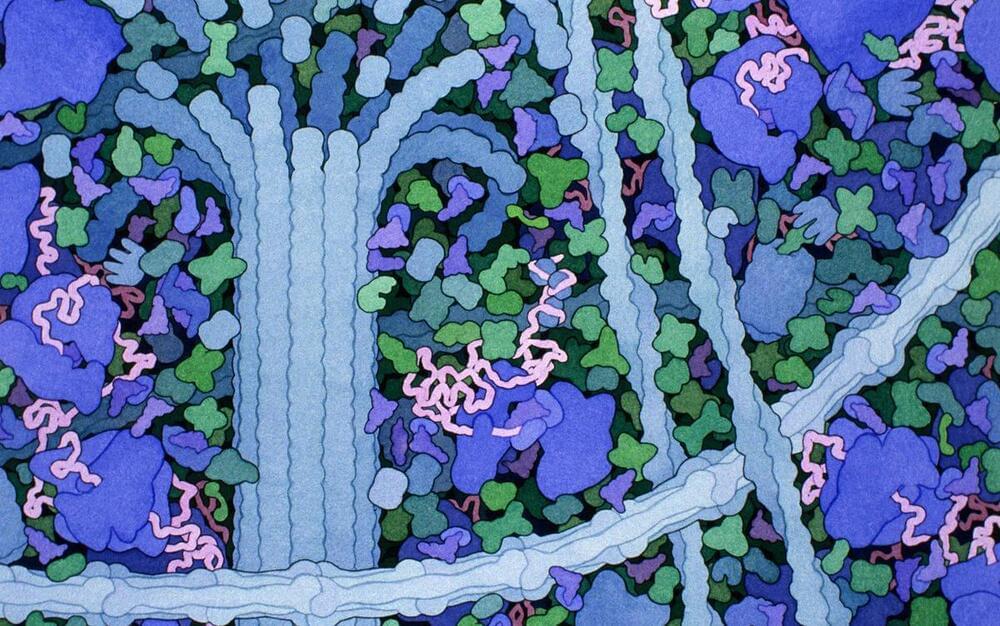
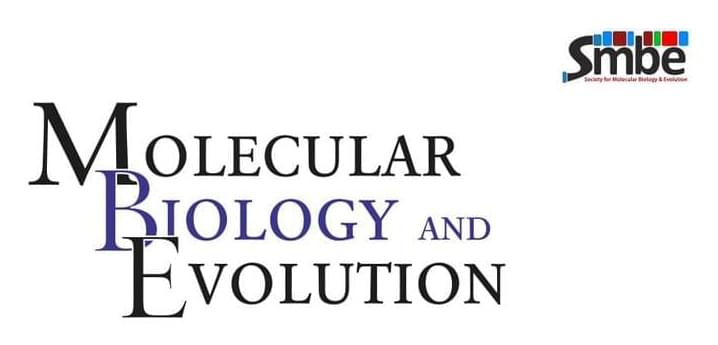
Researchers report the birth of a ~2-billion-year-old orphan gene following #planetary #oxygenation, and how this humble beginning shaped the global planetary #ecosystem.
From so simple, a beginning: https://oup.silverchair-cdn.com/UI/app/svg/i.svg?versionId=192134
Abstract. Molecular innovations within key metabolisms can have profound impacts on element cycling and ecological distribution. Yet, much of the molecular foundations of early evolved enzymes and metabolisms are unknown. Here, we bring one such mystery to relief by probing the birth and evolution of the G-subunit protein, an integral component of certain members of the nitrogenase family, the only enzymes capable of biological nitrogen fixation. The G-subunit is a Paleoproterozoic-age orphan protein that appears more than 1 billion years after the origin of nitrogenases. We show that the G-subunit arose with novel nitrogenase metal dependence and the ecological expansion of nitrogen-fixing microbes following the transition in enviromental metal availabilities and atmospheric oxygenation that began ∼2.5 billion years ago. We identify molecular features that suggest early G-subunit proteins mediated cofactor or protein interactions required for novel metal dependency, priming ancient nitrogenases and their hosts to exploit these newly diversified geochemical environments. We further examined the degree of functional specialization in G-subunit evolution with extant and ancestral homologs using laboratory reconstruction experiments. Our results indicate that permanent recruitment of the orphan protein depended on the prior establishment of conserved molecular features and showcase how contingent evolutionary novelties might shape ecologically important microbial innovations.
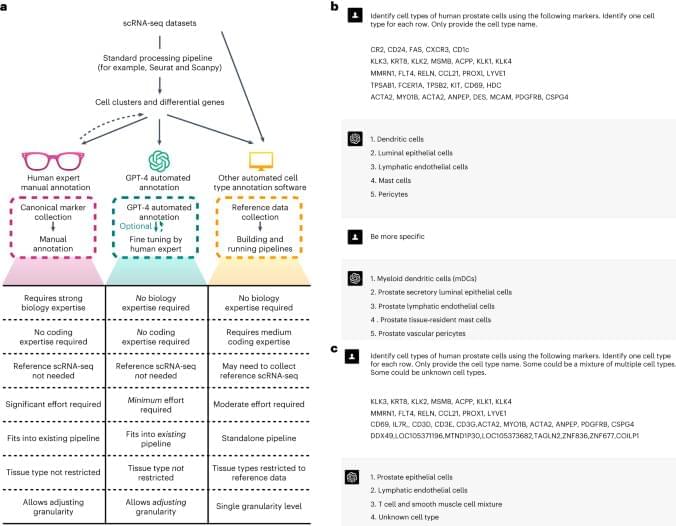
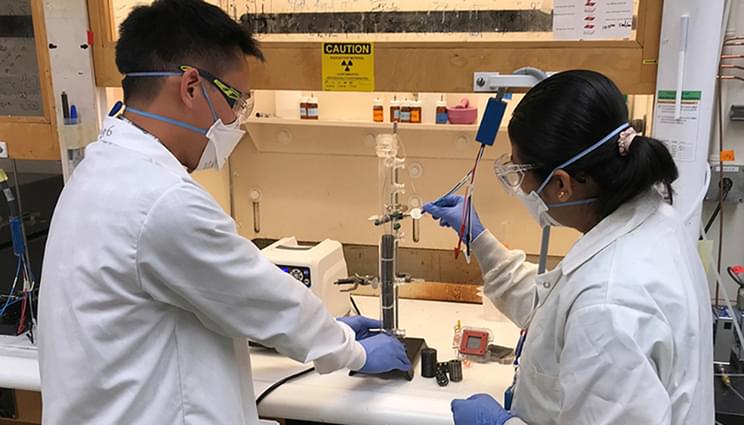
Four Lawrence Livermore National Laboratory (LLNL) researchers have partnered with Los Angeles-based SoCalGas and Munich, Germany-based Electrochaea to develop an electrobioreactor to allow excess renewable electricity from wind and solar sources to be stored in chemical bonds as renewable natural gas.
When renewable electricity supply exceeds demand, electric-utility operators intentionally curtail production of renewable electricity to avoid overloading the grid. In 2020, in California, more than 1.5 million megawatt hours of renewable electricity were curtailed, enough to power more than 100,000 households for a full year.
This practice also occurs in other countries. The team’s electrobioreactor uses the renewable electricity to convert water into hydrogen and oxygen. The microbes then use the hydrogen to convert carbon dioxide into methane, which is a major component of natural gas. Methane can then be moved around in natural gas pipelines and can be stored indefinitely, allowing the renewable energy to be recovered when it is most needed.

Probabilistic computing with stochastic devices.
In recent decades, artificial intelligence has been successively employed in the fields of finance, commerce, and other industries. However, imitating high-level brain functions, such as imagination and inference, pose several challenges as they are relevant to a particular type of noise in a biological neuron network. Probabilistic computing algorithms based on restricted Boltzmann machine and Bayesian inference that use silicon electronics have progressed significantly in terms of mimicking probabilistic inference. However, the quasi-random noise generated from additional circuits or algorithms presents a major challenge for silicon electronics to realize the true stochasticity of biological neuron systems. Artificial neurons based on emerging devices, such as memristors and ferroelectric field-effect transistors with inherent stochasticity can produce uncertain non-linear output spikes, which may be the key to make machine learning closer to the human brain. In this article, we present a comprehensive review of the recent advances in the emerging stochastic artificial neurons (SANs) in terms of probabilistic computing. We briefly introduce the biological neurons, neuron models, and silicon neurons before presenting the detailed working mechanisms of various SANs. Finally, the merits and demerits of silicon-based and emerging neurons are discussed, and the outlook for SANs is presented.
Keywords: brain-inspired computing, artificial neurons, stochastic neurons, memristive devices, stochastic electronics.

Neuromorphic computing is an emerging solution for companies specializing in small, energy-efficient edge computing devices and robotics, striving to improve their products. There has been a paradigm shift in computing since the advent of neuromorphic chips. With the potential to unlock new levels of processing speed, energy efficiency, and adaptability, neuromorphic chips are here to stay. Industries from robotics to healthcare are exploring the potential of neuromorphic chips in various applications.
What is Neuromorphic Computing?
Neuromorphic computing is a field within computer science and engineering that draws inspiration from the structure and operation of the human brain. Its goal is to create computational systems, including custom hardware replicating the neural networks and synapses in biological brains. These custom computational systems are commonly known as neuromorphic chips or neuromorphic hardware.